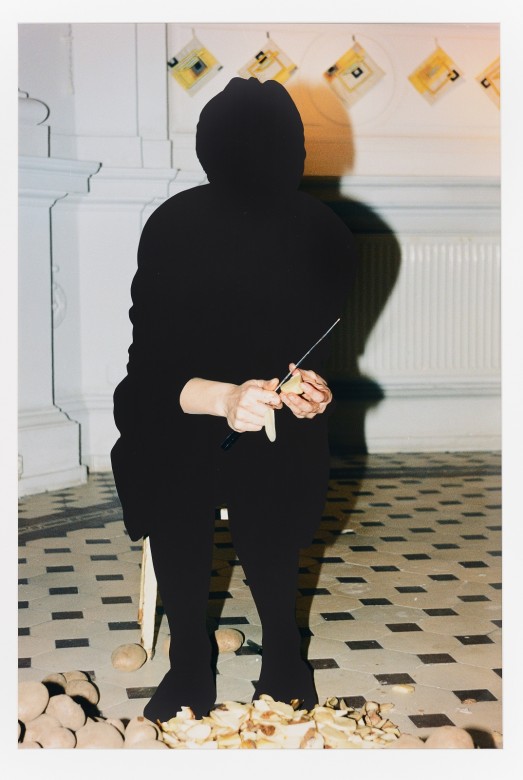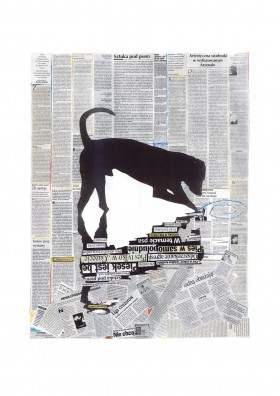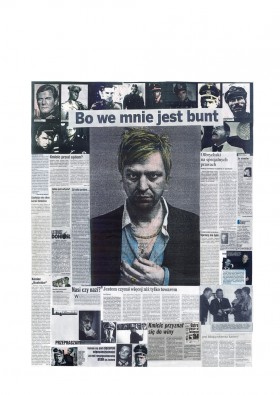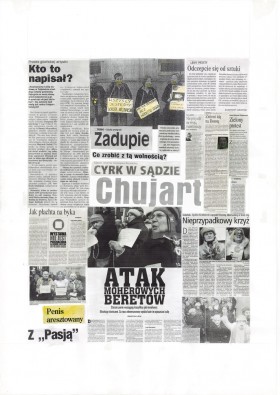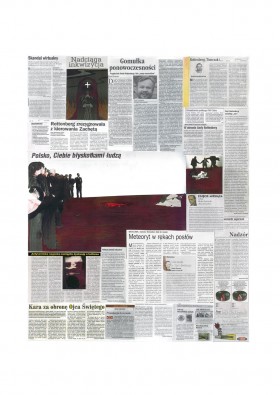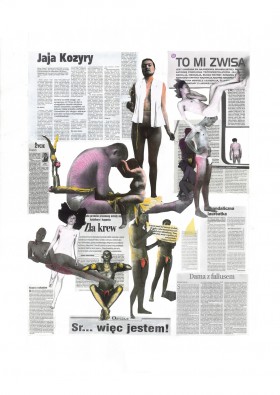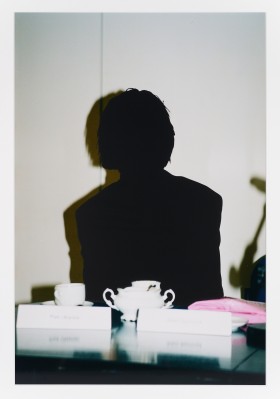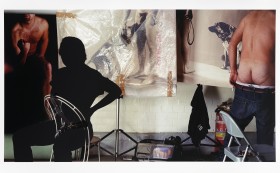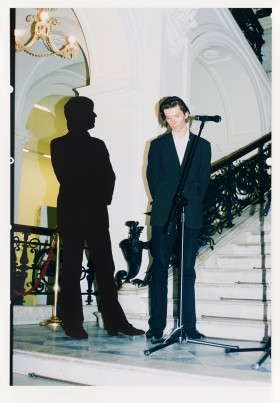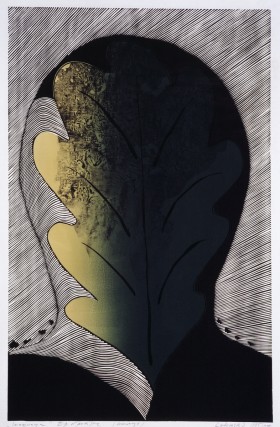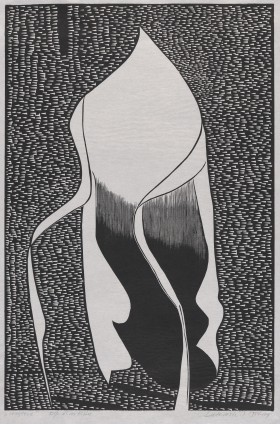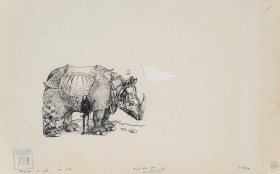Anti-collage (Julita Wojcik)
- type of object: print
- date: 2011
- material/technique: serigraph on photography
- dimensions: 175 x 120 cm
- inventory No.: G-2441
- image licensed under: CC BY-NC-ND 3.0
The cycle of lithographs and photographs was created for Goshka Macuga’s solo exhibition at Zachęta (2011/2012). Macuga delved into the history of the Zachęta gallery to examine instances of censorship in Polish art after 1989. In her new works, she used materials related to the artistic projects that had provoked the most controversy and attacks. The exhibition featured enlarged photographs, including artist Piotr Uklański and curator Adam Szymczyk at the opening of The Nazis (2000) — an installation destroyed by actor Daniel Olbrychski with a saber; Anda Rottenberg at an award ceremony for Zachęta employees; Harald Szeemann, curator of the anniversary exhibition Beware of Exiting Your Dreams: You May Find Yourself in Somebody Else’s (2000/2001), which included Maurizio Cattelan’s much-criticised sculpture La Nona Ora; Monika Szewczyk, director of Galeria Arsenał in Białystok, who was criticised for displaying Piotr Kurka’s work I Got a Puppy Dog in the exhibition Dog in Polish Art (2003); Julita Wójcik during her performance Peeling Potatoes (2001); and finally a photo of Dorota Nieznalska, who was accused of offending religious feelings with her Passion (2001). The images of the artists and curators were obscured with black paint using the silkscreen technique. This gesture symbolises the desire of some media and society to erase them from public life. Macuga also created lithographs made up of press clippings that testify to the media frenzy surrounding various projects, not only in Zachęta. The voices presented are critical and even aggressive.
Ewa Skolimowska
Donation of the artist and Galerie Rüdiger Schöttle
